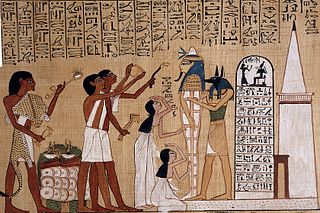
A funeral is a ceremony connected with the final disposition of a corpse, such as a burial or cremation, with the attendant observances. Funerary customs comprise the complex of beliefs and practices used by a culture to remember and respect the dead, from interment, to various monuments, prayers, and rituals undertaken in their honour. Customs vary between cultures and religious groups. Funerals have both normative and legal components. Common secular motivations for funerals include mourning the deceased, celebrating their life, and offering support and sympathy to the bereaved; additionally, funerals may have religious aspects that are intended to help the soul of the deceased reach the afterlife, resurrection or reincarnation.

A ceremony is a unified ritualistic event with a purpose, usually consisting of a number of artistic components, performed on a special occasion.

Humanists UK, known from 1967 until May 2017 as the British Humanist Association (BHA), is a charitable organisation which promotes secular humanism and aims to represent "people who seek to live good lives without religious or superstitious beliefs" in the United Kingdom by campaigning on issues relating to humanism, secularism, and human rights. It seeks to act as a representative body for non-religious people in the UK.
Civil registration is the system by which a government records the vital events of its citizens and residents. The resulting repository or database has different names in different countries and even in different subnational jurisdictions. It can be called a civil registry, civil register, vital records, and other terms, and the office responsible for receiving the registrations can be called a bureau of vital statistics, registry of vital records and statistics, registrar, registry, register, registry office, or population registry. The primary purpose of civil registration is to create a legal document that can be used to establish and protect the rights of individuals. A secondary purpose is to create a data source for the compilation of vital statistics.

The Institute of Directors (IoD) is a British professional organisation for company directors, senior business leaders and entrepreneurs. It is the UK's longest running organisation for professional leaders, having been founded in 1903 and incorporated by Royal Charter in 1906. The Royal Charter charged the IoD with promoting free enterprise, lobbying government and setting standards for corporate governance.

The Marriage Act 1961(Cth) is an Act of the Parliament of Australia which regulates marriage in Australia. Since its passage in 1961, it has been amended on numerous occasions and applies uniformly throughout Australia (including its external territories); and any law made by a state or territory inconsistent with the Act is invalid. The Act was made pursuant to power granted to the federal parliament under s.51(xxi) of the Australian Constitution. Although the federal parliament was given the power to pass laws about marriage at federation in 1901, it did not use this power until the adoption of the Act, while before 1961, each Australian state and territory had its own marriage laws.

Humanist Society Scotland is a Scottish registered charity that promotes humanist views and offers humanist wedding, funeral, and baby-naming ceremonies. It is a member of the European Humanist Federation and Humanists International.
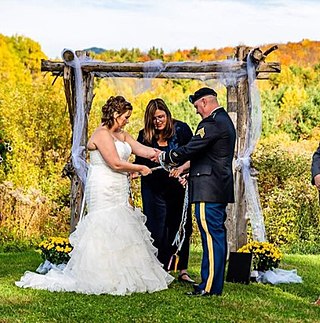
An officiant or celebrant is someone who officiates at a religious or secular service or ceremony, such as marriage, burial, namegiving or baptism.

The Icelandic Ethical Humanist Association is a humanist lifestance organization in Iceland, that promotes secularism, offers celebrancy services and contributes to the spreading of humanism in Iceland and abroad. It is a member of the European Humanist Federation and Humanists International.

In Australia, celebrants or civil celebrants are people who conduct formal ceremonies in the community, particularly weddings – which represent the main ceremony of legal import conducted by celebrants –, and for this reason are often referred to as marriage celebrants. They may also conduct extra-legal ceremonies such as naming of babies, renewal of wedding vows, funerals, divorces, becoming a teenager, changing name, significant birthdays, retirements, and other life milestones. Officiating at a marriage requires that the celebrant be an authorised marriage celebrant under Australian law, or the law where the marriage takes place, but officiating at non-legal ceremonies does not.
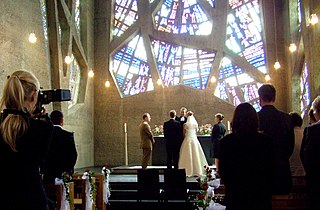
A marriage officiant or marriage celebrant is a person who officiates at a wedding ceremony.

A humanist celebrant or humanist officiant is a person who performs humanist celebrancy services, such as non-religious weddings, funerals, child namings, coming of age ceremonies and other rituals. Some humanist celebrants are accredited by humanist organisations, such as Humanists UK, Humanist Society Scotland (HSS), The Humanist Society (US), and the Humanist Association of Canada (HAC).
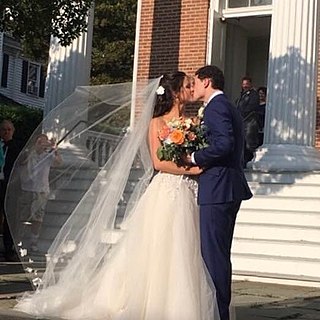
Celebrancy is a profession founded in Australia in 1973 by the then Australian attorney-general Lionel Murphy. The aim of the celebrancy program was to authorise persons to officiate at secular ceremonies of substance, meaning and dignity mainly for non-church people. Up until this point legal marriages were reserved only to clergy or officers of the Births, Deaths & Marriages registry office. These appointed persons, referred to in the Marriage Act of Australia as "authorised celebrants", create & conduct weddings, funerals, namings, house dedications, coming of age and other life ceremonies for those who do not wish to be married or have other ceremonies in a church or registry office.
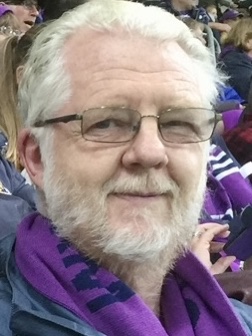
Mark O'Connor is an Australian poet, writer, and environmental activist. He is the author of twelve books of poetry on regions of Australia such as the Great Barrier Reef and the Blue Mountains, often collaborating with renowned nature photographers. He has also written two books on the issue of overpopulation, This Tired Brown Land (1998) and, more recently, Overloading Australia. He has been a staunch advocate of incorporating quality poetry into civil celebrant ceremonies as evidenced for them in his professional development sessions.

The Birmingham Humanist Group was formed on 23 May 1962 at the Arden Hotel, New Street, Birmingham, England, at a meeting convened by Dr Anthony Brierley. It changed its name to Birmingham Humanists in 2000 and voted to become a Partner Group of the BHA, which changed its name to Humanists UK in 2017. It holds most of its meetings at the rooms of the Community Development trust in Moseley, Birmingham.
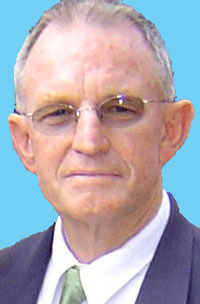
Dally Messenger III, is the grandson of the renowned Rugby Union and Rugby League footballer, Herbert Henry “Dally” Messenger. From 1974 he gained prominence as a developer and media spokesperson of the fledgling civil celebrant program founded by Australian Attorney-General, Lionel Murphy. He has also been credited with acknowledged contributions as an author, publisher, editor, historian, and social activist. After leaving the Roman Catholic priesthood in 1968, Messenger became a public critic of the Catholic Church on such issues as birth control, abortion, the place of women, celibacy of the clergy, human rights, and church authority. Messenger has written for various publications, including The Australian and Nation Review. Messenger was founder and editor of the magazine Dance Australia. His books cover diverse topics, including rugby league, children of separated parents, early Melbourne radio, how to design celebrant ceremonies, and the history of celebrancy.

A civil funeral celebrant is a person who officiates at funerals which are not closely connected with religious beliefs and practises. They are analogous to civil celebrants for marriage ceremonies. Civil celebrant funerals began in Australia in 1975. As secular (civil) wedding ceremonies became accepted, first in Australia and then in other Western countries, a similar process for funerals has since been established in New Zealand, the United Kingdom, Canada and the United States. Civil funeral celebrants are often also civil marriage ceremony celebrants.
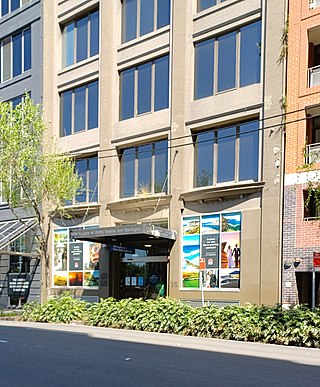
Civil registration in Australia of births, deaths and marriages as well other life events is carried out and maintained by each state and territory in Australia, in an office called a Registry of Births, Deaths and Marriages. It is compulsory in each jurisdiction, though the procedures and information recorded varies between jurisdictions. Access to information on the register is restricted by period or relationship, and is usually provided at a fee in the form of certificates. Nowadays, certificates can also be ordered online, and will be posted to the applicant, often with some delay.
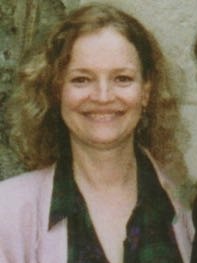
Remi Barclay Messenger, aka Remi Barclay & Remi Barclay Bosseau (b.1946) was a founding member of three prominent professional theatre companies in the New York City area – The Performance Group (l967–70), with Richard Schechner, Whole Theatre (1971–1990) and Voices of Earth (1988–2000), the latter two with Olympia Dukakis as a co-director. Her theatre work included years of acting, directing and teaching as well as creating workshops for a wide spectrum of institutions, schools and universities.















